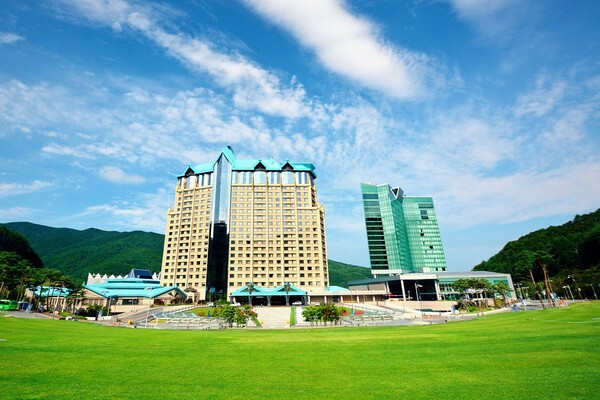
Gangwon Land, South Korea's premier integrated resort known for its casino and ski facilities developed on former mining lands in Gangwon Province, is making strategic inroads into the burgeoning Central Asian tourism market. The move underscores the resort's ambition to transform into a world-class global destination by 2032, leveraging its unique heritage and comprehensive recreational offerings.
On June 27, Gangwon Land announced a General Sales Agent (GSA) agreement with One Mongolia, a prominent outbound travel agency based in Ulaanbaatar. One Mongolia specializes in airline-related products, holding GSA agreements with major carriers like Hunnu Air and MIAT Mongolian Airlines. This partnership is set to significantly boost Gangwon Land’s marketing and sales efforts aimed at attracting Mongolian tourists.
Further solidifying its regional ties, Gangwon Land held discussions with Mongolia's Sky Resort last month, exploring cooperation avenues including an employee exchange program. Sky Resort, the largest ski facility in Mongolia, located on Bogd Khan Mountain near Ulaanbaatar, operates year-round, offering winter sports and a golf course. Discussions also focused on developing content for Gangwon Land’s new Mining Culture Park, drawing inspiration from Mongolian historical and cultural sites such as the Chinggis Khaan Museum, reflecting Gangwon Land’s commitment to redeveloping its abandoned mine areas.
Preceding these developments, on June 25, Gangwon Land formalized a Memorandum of Understanding (MOU) with Kazakhstan's Shymbulak Resort. Situated in the scenic Zailiyskiy Alatau mountains near Almaty, Shymbulak is a leading Central Asian mountain resort, famous for its extensive ski slopes and year-round activities, including a unique rope park. The MOU aims to foster increased tourist exchanges and facilitate joint marketing and product development between the two resorts.
Choi Cheol-gyu, Acting CEO of Gangwon Land, emphasized the strategic importance of this expansion. "Central Asia, with its rich natural beauty and cultural depth, represents a compelling emerging market where interest in Korean tourism is rapidly increasing," stated Choi. This surge in interest, particularly in countries like Kazakhstan and Uzbekistan, is attributed to factors such as direct flights and the growing influence of the Korean Wave (Hallyu). The region’s tourism sector projects a robust 6.2% annual growth in direct GDP contribution over the next decade, despite challenges in infrastructure.
Through these concerted efforts and partnerships, Gangwon Land is poised to capitalize on Central Asia's growing outbound tourism, aiming to create substantial global tourism demand and diversify its international visitor base as it strives towards its vision of becoming a global integrated resort.
[Copyright (c) Global Economic Times. All Rights Reserved.]




























